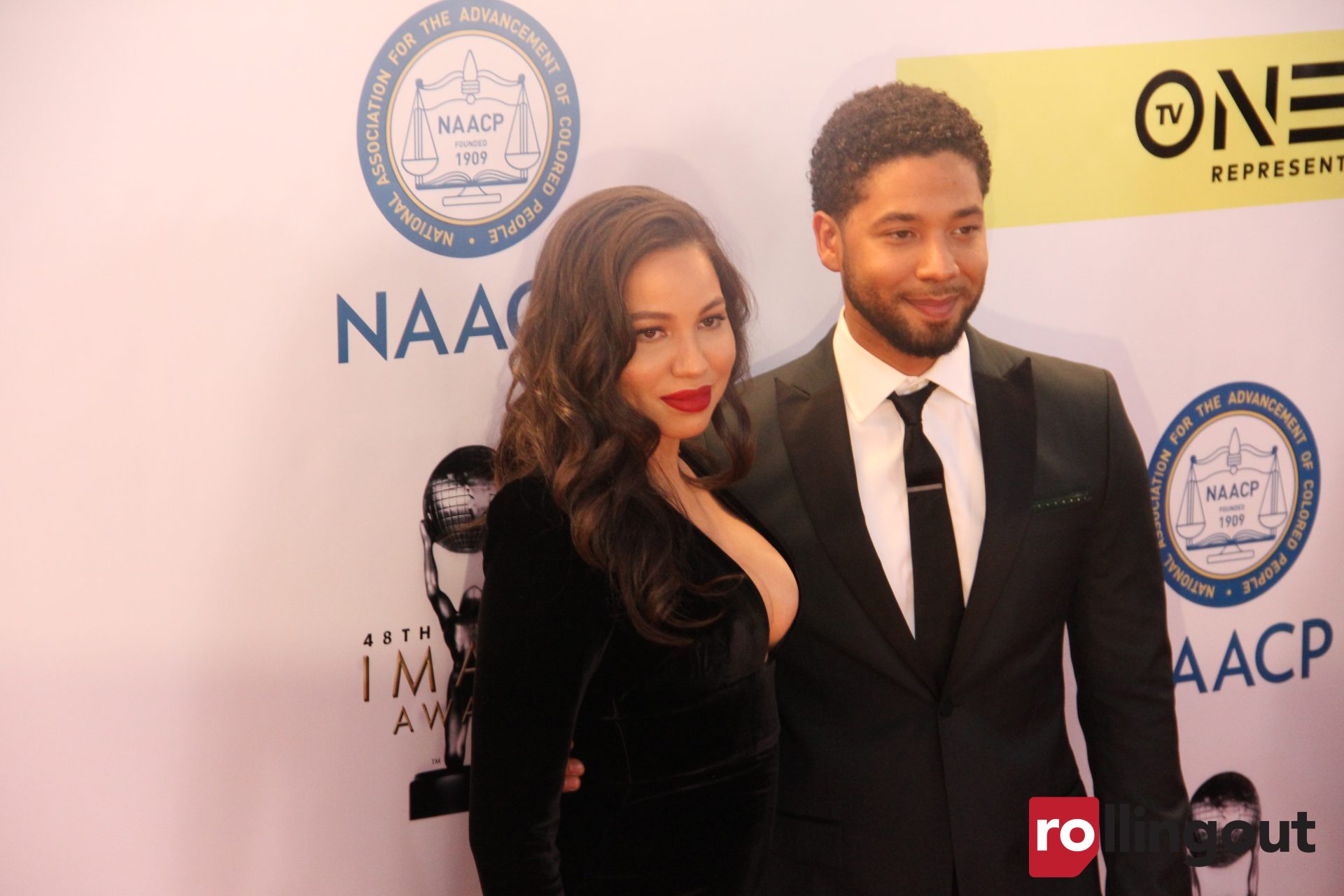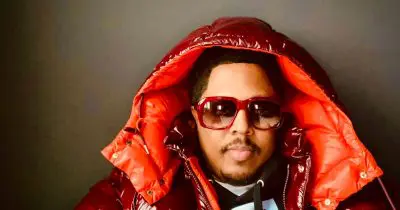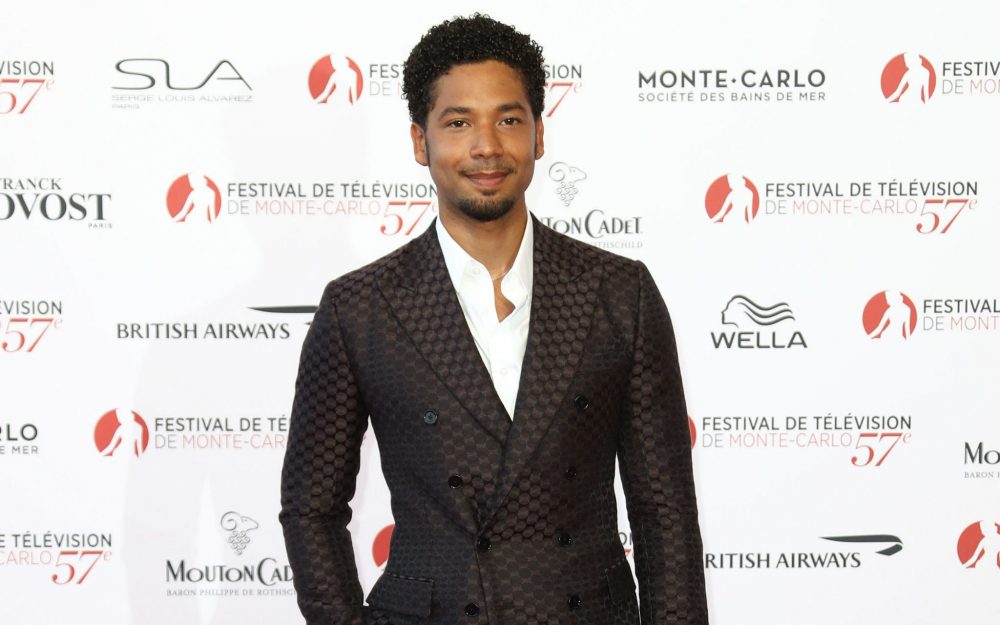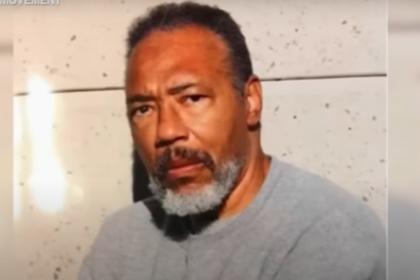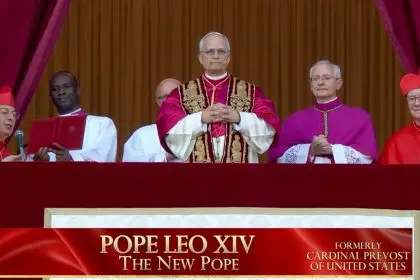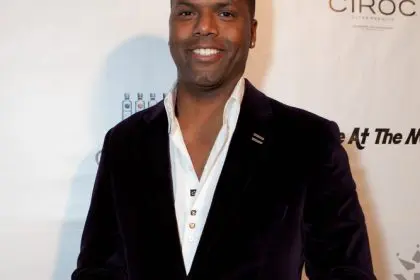Veteran Emmy-nominated actress Jurnee Smollett, an NAACP Image Award winner, plays a mother named Dolores in her new film We Grown Now, which she also helped executive produce. It’s about two young boys who grow up in the 1990s in Chicago’s rough Cabrini-Green housing project, one of which is her son Malik, played by Blake Cameron James. He stars alongside Gian Knight Ramirez’s character Eric.
The coming-of-age tale is scheduled to be released this week in theaters across America and in advance of that, rolling out managing editor Darryl Maxie had a chance to speak with her about the movie.
Darryl Maxie: Yes, this is Darryl Maxie with rolling out. Hey, how’re you doing, Jurnee?
Jurnee Smollett: Um, well, how are you? I’m doing pretty good.
DM: I feel like I just literally watched you going toe to toe with Jamie Foxx in the courtroom just days ago [in the movie The Burial.] I mean, literally days ago. And here I am, talking to you now.
JS: I love that film. I love that experience. It was a good one. It was definitely a good one.
DM: I thank you for your work on that. But I’ve been following your career, I mean, ever since Eve’s Bayou. And when I’m thinking about this film — now I know it’s called We Grown Now, but it feels more like “You Grown Now” because you’ve kind of matured in front of the American public’s eyes. And as you’ve matured, your roles have kind of matured with you. It wasn’t very long ago that we saw you getting muddy trying to rescue your daughter from the clutches of a man.
JS: Lou! (The Netflix movie)
DM: Yes, and and now we’re talking about you, in some ways, rescuing your son. From anybody who knew anything about Cabrini-Green, it was kind of a rough patch of Chicago. I’m kind of curious as to what is it now that’s drawing you to roles that you’re rescuing your children.
What drew her to Dolores
JS: That’s so interesting, because I honestly looked at it as if my son was rescuing me in this, you know, that, that he teaches me to grow up. And, and all ignites the fire in me to grow in the moment when, as my mother played by the brilliant S. Epatha [Merkerson], says to me that these babies won’t grow unless you grow. You know, I think that’s that moment that we understand that, oh, in parenting, we’re not actually parenting just them. We’re parenting our own inner child.
And so what draws me to these roles? You know, I think for me, I just was very excited to see a story like this that I hadn’t seen on screen. You know, I want to see more stories like this. I mean, it’s told through the eyes of these two little boys, these two little Black boys and, and their beautiful friendship and what that means, you know. And I want to help usher forward stories like this, you know, and so when I was asked to join the cast and the producing team, what excited me was the notion that we could do something fresh, and we could contribute to the cinematic canon in a way that felt essential and urgent. And, you know, yeah, that’s, that’s probably how I pick the roles is what feels like my soul is called to telling the story, what do I feel needs to be on screen?
DM: Right, right. Well, not too long ago, you were quoted as saying that motherhood kind of brought out a whole new side of womanhood. So what about your real-life journey as a mother now feeds into what you’re doing?
JS: Oh, man, I think the first thing that comes to mind when you ask that is the stamina. You know, the stamina of just trying to do it all, the stamina of feeling in moments that you’re failing, the feeling in moments that, oh, man, nobody’s happy with me. And yet, I’m taking care of all y’all, you know, like that, that that feeling that I desperately am trying to honor in which I’m trying to pursue what I love, you know, without neglecting those that I love, and the impossibility of maintaining that at 100% all the time that you will fail, that you need to be kind to yourself.
That, yes, I tried to take my son everywhere with me, he’s grown up on sets, like I did. He’s just been at the monitor. But still, there’s moments where I still feel like “Oh, am I failing?” You know and so I think in “Dolores,” I really connected to that struggle, of, you know, raising a family by yourself, being the breadwinner.
And children don’t always understand the toll that takes on you and it’s not their job to understand that. Right? But when you come in, and you just put your bags down, and they want to talk, or they want to play, or they want you to make them some food and the stamina that requires, you know, I really related to that. I saw that in my mother. I was aware of that existing in my grandmother, who worked, you know, from sunup until sundown, cooking for families so much, she couldn’t really cook for her own kids and would miss dinner time and come home at 8 o’clock most nights.
And so just wanting to pay honor to that, but also knowing I’m still in my own walk. Even though I sit in a place of privilege that someone like Dolores does not. We share, we have a lot in common in our struggle, similarities.
DM: Okay, now let me take you to another place of similarities. Growing up as a child star, how did that impact your chemistry with Blake Cameron James?
How being a child star helped her relate
JS: It’s funny, you know, whenever someone calls me a child star, I was a child who acted. You know, my resume is not 50 pages long because my mother was very selective and wouldn’t put a price tag on my integrity. But I understand what you mean by the question. I think the way it impacted my collaboration with these two beautiful actors, Blake and Gian [Ramirez], was I channeled a lot of ways in which actors on set dealt with me when I was a kid. You know, being on set with Samuel L. Jackson when I was ten on Eve’s Bayou.
I learned so much just by watching him, the generosity, the respect he had for the crew, the professionalism, the way he knew his lines, the way he would, you know, land every single take. Every take was different. He would do things off-camera to get a certain honest reaction out of me. So, these are the tools that I used with them. Kids are very honest and believable actors because they naturally do it every day. They’re in their room, playing make-believe with their trucks and their dolls.
And so if you don’t mess with it, as adults, if you just let them be and let them play, it makes for real great art. So, that was really my approach with them and just empowering them to trust their instincts because they’re, they’re very gifted.
DM: Thank you very much, Jurnee, for your time. Appreciate it.




